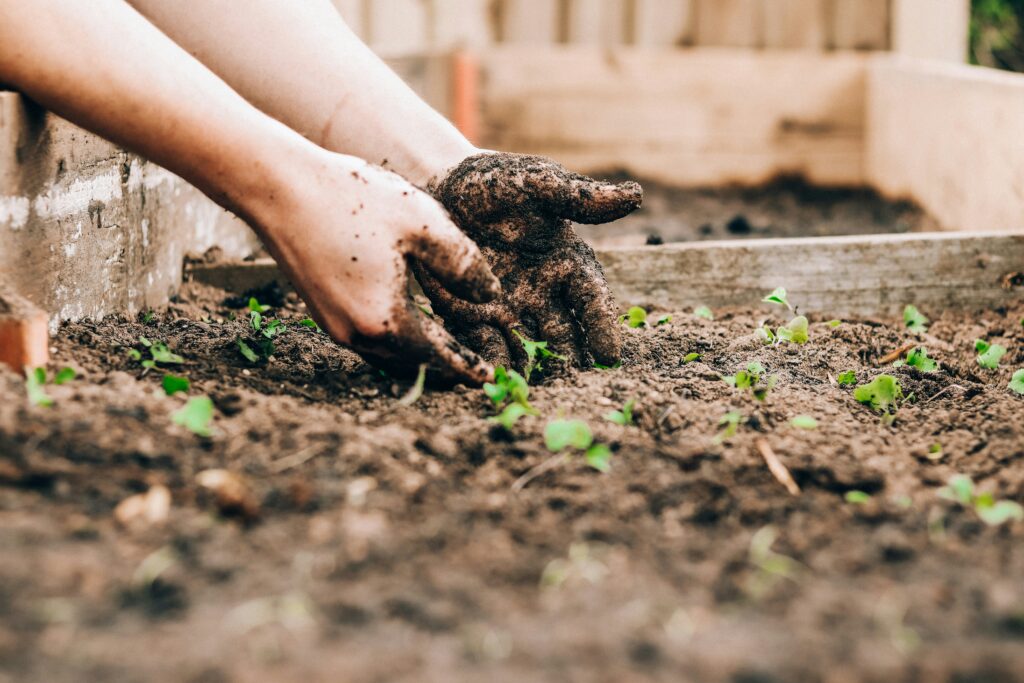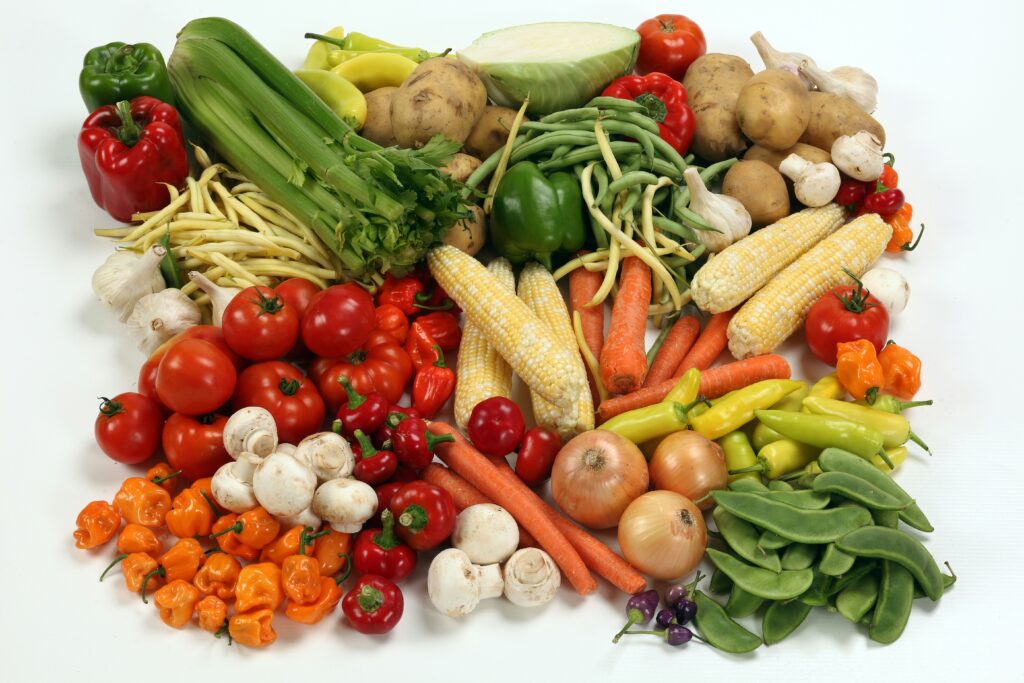Transforming your love for gardening into a source of income might seem like a far-fetched dream. However, with the right tools, strategies, and motivation, it’s entirely possible to convert your green thumb into a cash cow. This post will take you through the intricate process of turning your gardening prowess into a prosperous venture.
Gardening is not just a hobby; it can be a thriving business opportunity that can yield substantial financial rewards. Whether it’s selling your produce, offering gardening classes, or starting a gardening blog, there are numerous avenues to explore. This post will delve into each of these prospects, offering insight into their profitability and practicality.

Harnessing your gardening skills for profit requires more than just being good at growing plants. It demands business acumen, marketing savvy, and a thorough understanding of your target market. This comprehensive guide will shed light on these aspects, aiming to equip you with all the necessary knowledge and tips.
Moreover, the post will explore different ways to monetize your gardening skills while remaining sustainable and environmentally friendly. From organic farming methods to water-conserving techniques, you’ll learn how to run a profitable yet eco-friendly gardening business.
By the end of this insightful journey, you’ll have a clear roadmap on how to turn your green thumb into a source of profit and prosperity. Get ready to discover exciting new ways to make your gardening passion pay off, with a little hard work, creativity, and determination. So, let’s dig in and let your gardening journey blossom into a profitable venture.
Identifying Profitable Plants
Before venturing into monetizing your gardening skills, a keen understanding of what plants are potentially profitable is fundamental. Selecting the right plants not only ensures a high return on investment but also guarantees continuous demand for your products.
Specialty crops such as medicinal herbs, gourmet vegetables, and ornamental plants are usually high-value plants with a consistent market demand. For instance, you can focus on growing ginseng, a medicinal herb with its roots highly sought after due to their extensive health benefits. A pound of dried ginseng can fetch a hefty price, making it a profitable venture.
Gourmet Vegetables and Fruits
Gourmet vegetables and fruits such as heirloom tomatoes, microgreens, and exotic fruits have a high market value, especially in the urban markets. Restaurants, farmer’s markets, and organic food stores are just a few potential markets for these crops.

Ornamental Plants
Ornamental plants, such as bonsai trees, orchids, and succulents, can bring in a decent income, especially if you can specialize in rare and exotic varieties. These plants are popular for home and office decoration and make excellent gifts.
Creating a Business Plan
Any profitable venture requires a well-crafted business plan, and this applies to gardening as well. Your plan should cover your target market, the cost of production, pricing strategies, and marketing plans.
Market Analysis
Analyze your local market to identify potential customers. This includes restaurants, local grocery stores, farmers markets, and individual buyers. Understanding their needs and preferences helps you tailor your products to meet their demand.
Cost of Production
The cost of production includes all expenses incurred during the growing of the plants, such as the cost of seeds, fertilizers, water, labor, and even marketing costs. Understanding these costs allows you to price your products appropriately to ensure a profit margin.
Enhancing Your Gardening Skills
To turn your gardening skills into a profitable venture, you need to be constantly learning and adapting to new gardening techniques and trends.
Education and Training
Consider taking up horticultural courses or gardening workshops to enhance your knowledge. These could range from learning about plant diseases and their control, soil management, irrigation techniques, to even business management courses.
Networking
Join gardening clubs and associations, attend horticultural events, and connect with other gardeners and experts in the field. This provides an opportunity to learn from their experiences and acquire new skills.
Marketing Your Products
Once you have your products ready for the market, the next crucial step is marketing them. This not only involves selling the products but also creating a brand for your gardening business.
Branding
Create a unique brand for your business that reflects the quality of your products. This could be through a logo, a catchy business name, or even the packaging of your products. A strong brand differentiates your products from those of competitors and gives you a competitive edge.
Digital Marketing
Utilize digital platforms such as social media, websites, and email marketing to reach a wider audience. Post engaging content about your products and gardening tips to attract potential customers.
Legal Requirements and Regulations for a Gardening Business
Starting a gardening business, whether focused on landscaping, nursery production, or organic herb cultivation, involves more than just horticultural skills. To run your operation legally and sustainably, you must comply with a series of regulations at the local, state, and sometimes federal level. These requirements vary by location and the specific nature of your business, so conducting thorough research and seeking professional guidance is highly recommended.
Understanding Business Structure and Registration
Before you even plant your first seed as a business owner, it’s essential to define your business structure. Will you operate as a sole proprietorship, limited liability company (LLC), partnership, or corporation? Each structure has different implications for liability, taxation, and recordkeeping.
Once you’ve chosen a structure, you typically need to register your business name with your local or state government. If you’re operating under a name different from your personal legal name, a “Doing Business As” (DBA) registration may also be required.
This process usually includes:
- Registering with the state’s Secretary of State or a similar entity
- Obtaining a federal Employer Identification Number (EIN) from the IRS
- Ensuring your business complies with local zoning laws
Some gardening businesses, especially those that involve physical storefronts or production spaces, may need to meet local building codes or obtain occupancy permits.
Permits and Licenses Specific to Gardening
Your gardening business may require several licenses depending on the services you offer and where you are located. Common licenses include:
Business Operation License
A standard requirement for nearly any business, this license grants you permission to operate legally within a municipality or county. It ensures local governments are aware of your presence and can levy appropriate taxes or regulations.
Nursery License
If you’re growing and selling plants, especially in larger volumes, your state may require a nursery license. This license is often issued by the department of agriculture or horticulture in your state and ensures your plants are free of pests or diseases.
Pesticide Applicator License
For those who intend to use or sell pest control products, a special certification or license is often required. Even natural or organic sprays may fall under regulatory scrutiny, particularly in agricultural zones or areas near water sources.
Landscape Contractor License
Some regions require a special license for landscape design and maintenance services, especially when projects exceed a certain dollar amount or include irrigation systems, grading, or hardscaping.
Home Occupation Permit
If you plan to operate your business from home, a home occupation permit may be necessary to comply with local zoning ordinances. This is particularly important if clients will visit your residence or if you’ll store business-related equipment on-site.
Health, Safety, and Environmental Compliance
Gardening businesses, like any enterprise interacting with the environment, must take special care to adhere to health and environmental laws. This includes:
- Proper storage and disposal of fertilizers, pesticides, and herbicides
- Compliance with water usage regulations or restrictions
- Managing soil contamination and runoff risks
- Providing employee safety training if you have hired staff
OSHA (Occupational Safety and Health Administration) guidelines may also apply if you have employees, especially in physically demanding roles like landscaping or greenhouse maintenance.
Agricultural Regulations and Compliance
Many gardeners eventually expand into small-scale farming or crop production, especially when they grow herbs, fruits, vegetables, or specialty plants. This shift brings additional oversight from state and federal agriculture departments. Key considerations include:
Crop Quarantines and Inspections
Some regions restrict the movement of certain plants, soils, or agricultural materials to prevent the spread of invasive species or diseases. Be aware of any plant quarantines in your area and ensure your operation is inspected as required.
Organic Certification
If you market your products as organic, you must be certified by a recognized authority such as the USDA. This involves a rigorous application process, including documentation of your farming practices, inputs used, and compliance with organic standards.
Seed and Plant Labeling
Selling seeds, bulbs, or rooted plants may require proper labeling and documentation. Labels may need to include scientific names, growth requirements, origin, and pest-treatment history.
Insurance and Liability Considerations
Protecting your business legally also means considering the risks and ensuring adequate insurance coverage. Standard policies include:
- General Liability Insurance – Covers property damage or personal injury claims related to your services
- Product Liability Insurance – Especially important if you sell edible or medicinal plants
- Commercial Property Insurance – Protects your tools, greenhouses, or inventory
- Workers’ Compensation Insurance – Required in many states if you employ others
Failing to carry proper insurance can leave you exposed to lawsuits and financial loss, even if the business is run part-time or from home.
Tax Obligations and Financial Reporting
Understanding your tax obligations is essential from day one. Gardening businesses may be subject to:
- Federal income tax (reported annually)
- State and local business taxes
- Sales tax, if you sell physical goods to consumers
- Employment tax, if you hire workers
Proper bookkeeping is vital to track income, expenses, payroll, and asset depreciation. Consider using software like QuickBooks or hiring a bookkeeper or accountant familiar with small business agriculture or landscaping.
Additionally, your business may qualify for tax deductions related to:
- Equipment purchases
- Office or greenhouse expenses
- Vehicle use for business purposes
- Business education or training
Filing taxes accurately and on time helps maintain legal compliance and avoids costly penalties.
Transforming Your Green Thumb into a Gold Mine
Building a thriving gardening business means aligning your passion with practical business sense. Whether you love landscaping, propagating plants, or cultivating specialty crops, there’s a strong market for your services if you can combine horticultural expertise with entrepreneurial strategy.
Identifying Your Niche
The most successful gardening businesses are those that serve a well-defined niche. Examples include:
- Organic herb gardens for culinary markets
- Landscape design for urban dwellers with small patios
- Sustainable garden installations using native plants
- Educational workshops for children or beginners
By narrowing your focus, you can create tailored marketing messages and stand out from generalist competitors.
Branding and Customer Experience
A professional brand goes beyond a logo. It includes your business name, website, social media presence, packaging, and customer service. Branding should convey your values—such as sustainability, beauty, or convenience—and appeal to your ideal customer.
Providing outstanding customer service encourages referrals and repeat business. Consider offering:
- Loyalty programs or memberships
- Gardening maintenance packages
- Free consultations or seasonal check-ins
Positive customer experiences are your most valuable marketing tool.
Expanding Your Services and Revenue Streams
As your business grows, you can explore additional revenue streams that complement your core services:
- Selling gardening kits or curated plant boxes online
- Offering subscription-based delivery of seasonal plants
- Hosting paid workshops or digital courses
- Collaborating with local cafés or restaurants for herb supply
- Renting booth space at farmers markets or garden expos
Diversification can help stabilize income and build your reputation as a community resource.
Leveraging Technology
Digital tools can help streamline and scale your business. Use platforms like Canva for marketing materials, Google Workspace for scheduling and communication, and Square or Stripe for payment processing.
You can also use social media to post garden tips, showcase your latest projects, and engage with your audience. Visual platforms like Instagram and Pinterest are especially effective for gardening-related content.
Transforming your Green Thumb into a Gold Mine
Turning your gardening skills into profit and prosperity involves more than just planting and selling plants. It requires a deep understanding of the market, enhancing your gardening skills, creating a brand, and adhering to legal requirements. However, with the right approach and dedication, you can transform your green thumb into a gold mine.
Conclusion
In conclusion, “Grow Your Green Thumb: How to Turn Your Gardening Skills into Profit and Prosperity” is a comprehensive guide for every gardening enthusiast who aspires to transform their passion into profit. The beauty of gardening lies not only in its ability to rejuvenate the mind but also in its potential for becoming a prosperous profession. With the surge in organic produce and green living, opportunities for profit in the gardening realm are aplenty.
This guide unearths the various avenues available for gardeners to monetize their skills, be it through selling homegrown produce, starting a gardening blog, or offering gardening consultation services. It emphasizes the significance of continuous learning, effective marketing, and quality services for business growth and customer satisfaction. Also, it addresses the challenges one might encounter, offering tips for overcoming them successfully.
In essence, this guide is a valuable resource that equips gardeners with the necessary tools to reap both personal satisfaction and financial gains from their gardening endeavors. So, whether you’re a novice gardener or a seasoned green thumb, this guide could be your stepping stone to gardening prosperity. The world is in dire need of green initiatives, and with this guide, you can do your bit while enjoying monetary benefits. Grow your green thumb, and let your garden bloom with prosperity!



